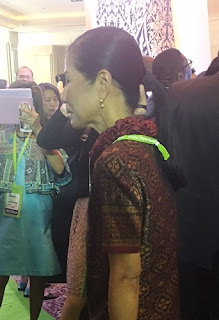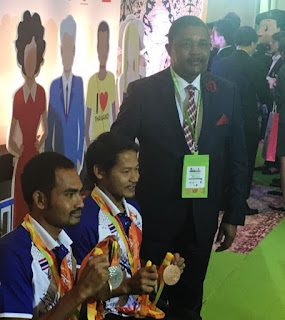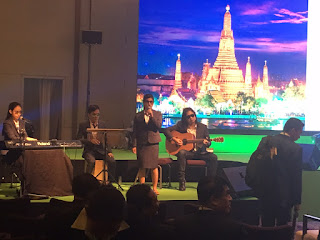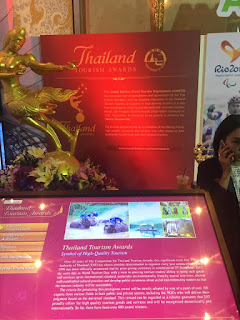
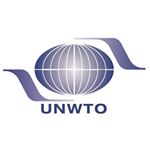
International tourist arrivals up 4% in the first half of 2016
Madrid, Spain, 29 September 2016, International tourist arrivals worldwide grew by 4% between January and June 2016 compared to the same period last year. Destinations worldwide received 561 million international tourists (overnight visitors), 21 million more than in 2015, according to the latest UNWTO World Tourism Barometer.
Asia and the Pacific demonstrated renewed strength this first half of 2016, receiving 9% more international arrivals, the highest growth across world regions. In the Americas, international arrivals increased by 4%, led by Central America and South America. Europe (+3%) showed mixed results, with solid growth in many destinations offset by weaker performance in others. In Africa (+5%), Sub-Saharan destinations rebounded strongly, while North Africa continued to report weak results. Limited data for the Middle East points to an estimated decrease of 9% in international arrivals this six-month period, though results vary from destination to destination.
“Tourism has proven to be one of the most resilient economic sectors worldwide. It is creating jobs for millions, at a time when providing perspectives for a better future to people of all regions is one of our biggest challenges. But tourism is also creating bonds among people of all nations and backgrounds, bringing down stereotypes and fighting fear and distrust”, said UNWTO Secretary-General, Taleb Rifai.
“Safety and security are key pillars of tourism development and we need to strengthen our common action to build a safe, secure and seamless travel framework. This is no time to build walls or point fingers; it is time to build an alliance based on a shared vision and a joint responsibility.” he added.
Regional Results
Growth accelerated in Asia and the Pacific with international arrivals up 9% through June, driven by robust intraregional demand. Oceania (+10%) led growth, followed by North-East Asia, South-East Asia (both +9%) and South Asia (+7%).
International tourist arrivals to Europe grew by 3% between January and June 2016, with mixed results across destinations. Northern Europe and Central and Eastern Europe both recorded 5% more international arrivals. Though many destinations posted positive results, growth in both Western Europe (+1%) and Southern Mediterranean Europe (+2%) was slow.
International arrivals in the Americas were up 4% in the first half of the year, in line with the world average. Strong US outbound flows continued to benefit many destinations across the region. Central America and South America (both +6%) led growth, while arrivals in both the Caribbean and North America grew by 4%.
Comparatively limited data available for Africa points to a 5% increase in international arrivals, with Sub-Saharan Africa (+12%) recovering vigorously, but North Africa down by 9%. International arrivals in the Middle East decreased by an estimated 9%, with mixed results among destinations.
Positive prospects for the second half of the year
The first half of the year typically accounts for around 46% of the total international arrivals count of the year. For the remainder of 2016 prospects are positive overall. Countries that have already reported results till July or August show continued growth in the current Northern Hemisphere summer peak season. The UNWTO Panel of Experts evaluated the period May-August also favourably and remains confident about the September-December period, in line with the trend of the first half of the year. Confidence is highest in Africa, the Americas and Asia and the Pacific, while experts in Europe and the Middle East are somewhat more cautious.
Demand for travel abroad varies across source markets
China, the world’s top source market, continued to report double-digit growth in expenditure on international travel (+20% in the first quarter of 2016), benefiting destinations in the region and beyond. The United States, the world’s second largest market, increased expenditure on outbound travel by 8% through July, thanks to a strong currency. Third largest market, Germany, reported a 4% increase in expenditure through July. Other markets that showed robust demand for outbound travel in the first half of 2016 were Spain (+20%), Norway (+11%), Australia (+10%) and Japan (+6%). Meanwhile expenditure from the Russian Federation and Brazil continues to be weak, reflecting the economic constraints and depreciated currencies in both markets.
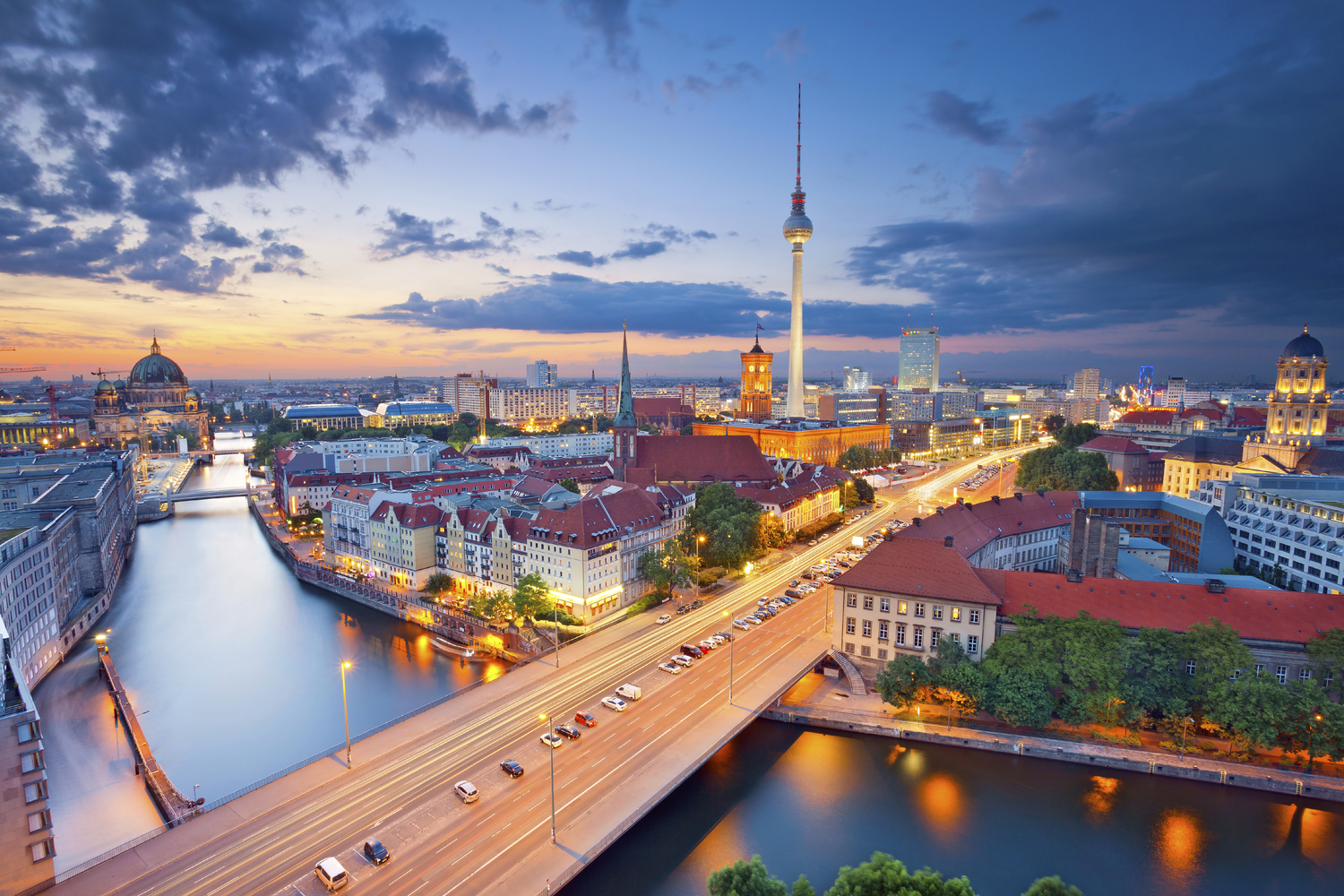
UNWTO calls for support to crisis-hit countries
UNWTO Secretary-General Taleb Rifai called for increased cooperation between tourism source markets and destinations that have been affected by crises. Addressing the 20th Summit of the Federal Association of the German Tourism Industry (BTW) on 26 September in Berlin, Germany on the topic of ‘Safe, Secure and Seamless Travel’, Rifai said: “real crises are often magnified or distorted by crises of perception. We need to enhance our support to countries affected by crises as they recover and help them increase their resilience. Supporting these countries will benefit the whole tourism sector and the whole of society.”
Attending the Summit was Chancellor Angela Merkel, who stressed the opportunities that sustainable tourism provides for developing and emerging countries. “It is important for the tourism sector to emphasize local culture and local products and services, to generate truly genuine development opportunities,” said the Chancellor. Ms. Merkel highlighted the role of tourism in development assistance. “Many refugees come from African countries. We need to give people economic development perspectives in their home countries. Tourism could contribute significantly to this,” she said.
Speaking about the need to build a framework of safe, secure and seamless travel, Mr Rifai said: “Safety and security is one of the global challenges our world is experiencing. No country is immune to security risks. Not one. It is a global responsibility that we must face together, across sectors and borders.” He called for increased cooperation, saying: “Let us respond not with isolation but with unity. We must be vigilant to ensure that cooperation prevails over isolation and that safe and seamless travel can go hand in hand”.
“A condition of tourism’s success is positive cooperation – between visitor and host, between source market and destination, and also between the tourism and security sectors. For this reason I call for the mainstreaming of tourism into national, regional and global safety and security agendas. Effective coordination, information sharing and communication mechanisms between tourism and security will lead to safer and more seamless travel, as well as better crisis management,” he added.
The UNWTO Secretary-General also welcomed the launch of the Transcultural Dialogue in Tourism series, an initiative of BTW and the Centre for Innovation and Sustainability in Tourism (CITS). “By its very nature, a partnership between Germany and one host country, this will be a truly remarkable effort to harness that incredible power of tourism to build bridges of trust and tolerance. This supports the conviction that all people, no matter how diverse their background, can benefit economies and societies. Tourism is a leading sector in providing solutions and opportunities for inclusion, and intercultural dialogue is a way of finding these solutions,” said Mr Rifai.
“The facilitation of intercultural dialogue has always been part of the essence of our sector. In these times, this dialogue is more important than ever,” said Michel Frenzel, President of BTW.
Despite current challenges, Mr Rifai stressed that tourism is proving to be one of the most resilient economic sectors worldwide, creating jobs for millions and contributing to more inclusive growth. He recalled that in 2015, international tourist arrivals reached 1.186 million, 52 million more than in 2014, and that data for the first half of 2016 confirmed this positive trend with a 4% increase in international tourist arrivals.
Mr. Rifai also highlighted the good results of Germany’s tourism sector. Germany welcomed 35 million international tourists last year, 2 million more than in 2014, earning the country 33 billion euros in exports.
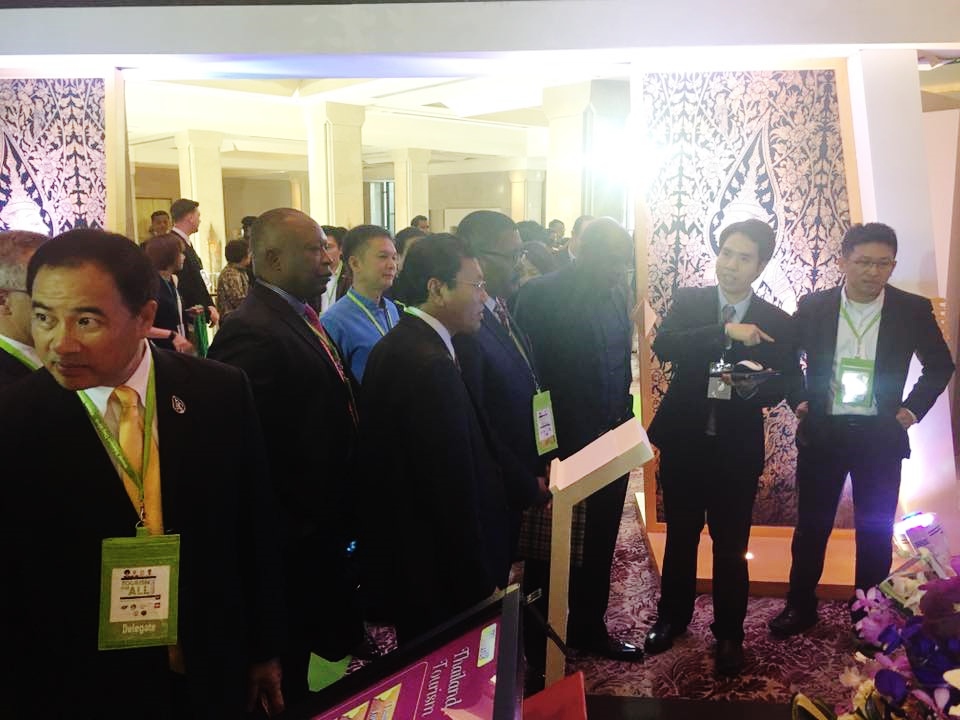
World Tourism Day event launches in Thailand
BANGKOK, Thailand (eTN) – The official celebration of World Tourism Day 2016 (September 27) has just launched in Bangkok, Thailand, under the theme, “Tourism for All,” promoting universal accessibility in the travel and tourism industry.
Thailand’s Minister of Tourism and Sports, Mrs. Konkarn Wattanavrangkulm, was on hand to welcome guests to the one-day event, as was the Hon. Dr. Walter Mzembi, candidate for the UNWTO Secretary-General position.
According to the World Health Organization (WHO), 15% of the world’s population (1 billion people) is estimated to live with some form of disability. UNWTO is convinced that accessibility for all to tourist facilities, products, and services should be a central part of any responsible and sustainable tourist policy.
World Tourism Day addresses the importance of good practices in the accessible tourism supply chain.
The opening included a touching rendition of blind people performing and singing “Somewhere Over the Rainbow.” Enjoy the images gathered by eTurboNews.
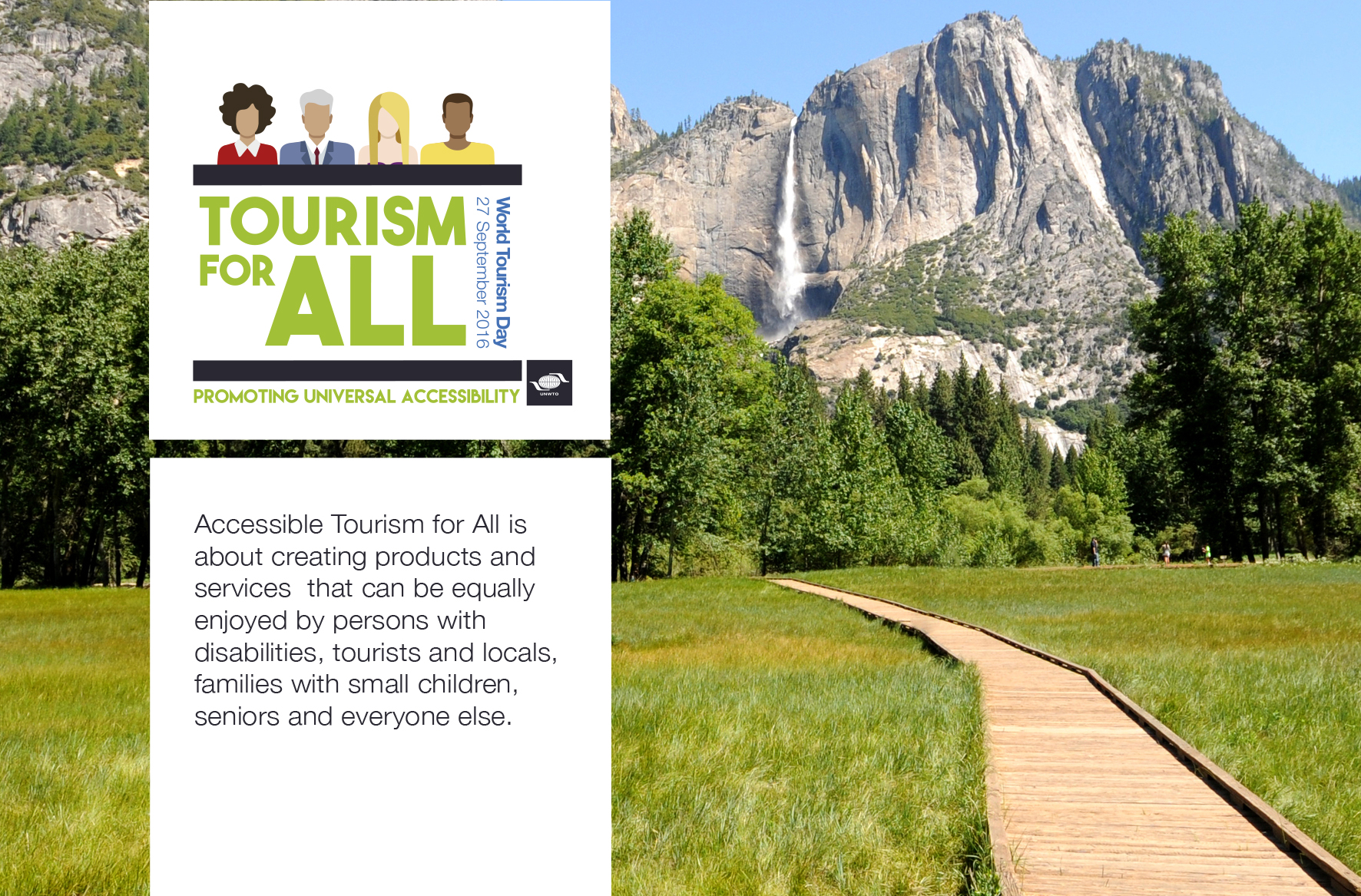
Accessible Tourism, theme of World Tourism Day 2016
Tourism for all: people with disabilities, senior citizens and families travelling with small children, and sooner or later all citizens will appreciate the advantages of universal accessibility. This is why UNWTO has chosen to celebrate World Tourism Day 2016 on the theme of accessible tourism. Official celebrations will take place on 27 September in Bangkok, Thailand.
For the last quarter–century World Tourism Day, held annually on 27 September, has aimed to foster awareness of the importance of tourism and its social, cultural, political and economic impact. This year’s official celebrations will be held in Bangkok, Thailand on the theme of ‘Tourism for All – Promoting Universal Accessibility’.
Reaching universal accessibility in tourism is a shared responsibility of all parties involved in the tourism value chain, as well as a business opportunity for companies and destinations.
“Everyone has the right to access leisure and tourism services on an equal basis. Yet 1 billion people around the world living with disability, along with young children, seniors and persons with other access requirements, still face obstacles in accessing fundamentals of travel such as clear and reliable information, efficient transportation and public services, and a physical environment that is easy to navigate. Even with modern technologies, those with visual, hearing, mobility or cognitive impairments are being left behind in many tourism destinations.” said United Nations Secretary-General Ban Ki-Moon in his official message.
“All of the world’s citizens have the right to experience the incredible diversity this planet has to offer. Therefore, it is highly important that all countries and destinations, as well as the industry, promote accessibility for all in the physical environment, in transport systems, in public facilities and services and in information and communications channels”, said UNWTO Secretary-General, Taleb Rifai.
“This year’s theme, ‘Tourism for All – Promoting Universal Accessibility’, is a challenge for Thailand and the world to recognize the necessity of accessibility in tourism and to accommodate everyone anywhere they may travel to (…) We have to understand the theory of Universal Design (…) As the world of travel and tourism is an expanding industry and the number of travelers increases every year, we have to ensure that travelling the world has to is as safe and seamless as possible,” explained Kobkarn Wattanavrangkul, Minister of Tourism and Sports of Thailand.
The official celebrations include a ‘Tourism and the Media’ session held on 26th September at Chulalongkorn University in Bangkok, and a full-day conference the following day. During the event, experts on accessibility and tourism will exchange views and best practices, addressing the need to work in cooperation to advance in the ‘Tourism for All’ agenda.
Creating an adequate policy framework for specific business development strategies, the need to increase awareness and capacity building targeting both decision makers and tourism professionals are some of the topics to be addressed during the conference. Andrew Stevens, Asia Pacific Editor of CNNMoney, will moderate this discussion.
The conference will also address innovative strategies in the development of accessible tourism infrastructure, products and services which add value to destinations and enhance their competitiveness on the global tourism market. A number of best practices will be featured with the aim of emphasizing the value of investing in accessibility.
The celebrations of World Tourism Day 2016 are being held in collaboration with CNN, UNWTO media partner.

ETOA – European tourism association welcomes the designation of 2018 as EU-China Year for Tourism
ETOA – the European tourism association welcomes the designation of 2018 as the EU-China Year for Tourism, as announced by Mr Jean-Claude Juncker, President of the European Commission and Mr Li Keqiang, Premier of the State Council of the People’s Republic of China, at the opening of the EU-China summit on 12 July 2016.
Tom Jenkins, ETOA CEO said: “China remains one of the most important future markets for European Tourism, and that there is a designated year for tourism co-operation is of course to be welcomed. How Chinese visitors are welcomed and accommodated, how their expectations can be met is one of the central topics that the industry has to address: this initiative will help them do so.”
“The EU-China Tourism Year is a great opportunity for the European tourism industry to explore the Chinese market, but also learn how to attract Chinese visitors and offer them the best experience”, said Eduardo Santander, ETC Executive Director. “ETC is looking forward to cooperating with the European Commission and the other EU tourism stakeholders, making sure that we turn this possibility into a great success.”
China is the world’s largest travel market in terms of both outbound travel and expenditure. Lately, European destinations have strengthened their position in this market, attaining 10,1 million Chinese visitors in 2015, accounting for a share of 13% of all outbound travel from China. ETC opened its Operations’ Group in Beijing in 2010, and has recently delivered extensive market intelligence on the Chinese market[1].
A first meeting with EU tourism stakeholders on the 2018 EU-China Tourism Year programme will take place in the ETC headquarters in Brussels in September 2016, while a discussion with a high level Chinese delegation is scheduled for 25 October 2016 in Beijing in the framework of the ETC Operations Group’s activities.
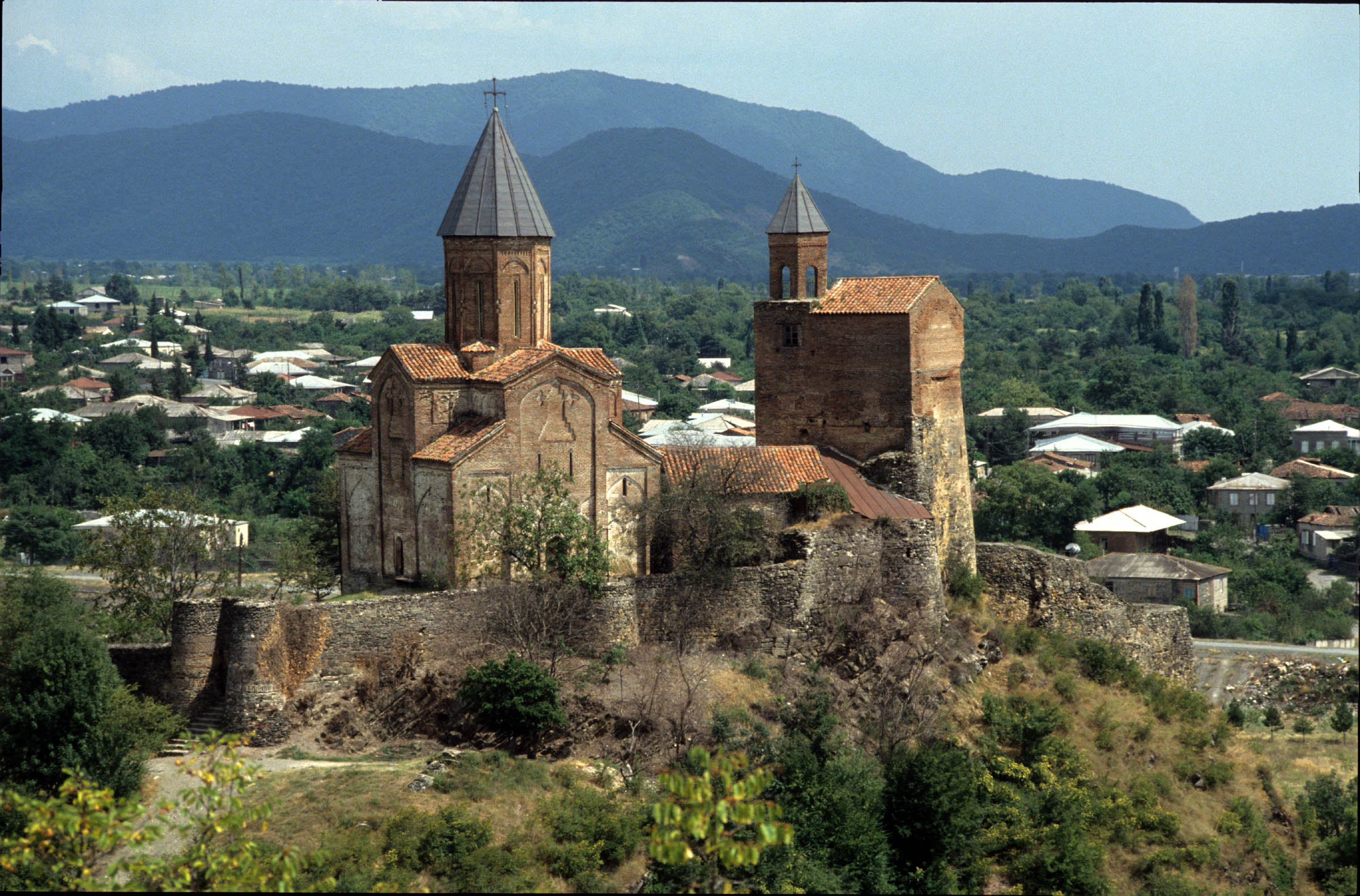
Wine Tourism – a growing tourism segment
The link between wine tourism and culture, history and lifestyle and the contribution of this segment to the development of the sector has been widely discussed during the 1st UNWTO Global Conference on Wine Tourism held in the Kahketi region in Georgia. During two days (7-9 September) the event convened over 200 participants including policy makers and tourism experts from nearly 50 countries.
In the last decade, wine tourism has become a key component of gastronomy tourism and a pillar in the strategies of diversification of many destinations. The event was a unique opportunity to discover the richness of local Georgian culture and to exchange innovative ideas to promote wine tourism between destinations already experienced in wine tourism with others with a high potential in that segment. Ministries, Destination Management Organizations (DMOS) and National Tourism Organizations (NTOs), universities, tour operators and wine professionals were among the participants.
“Wine tourism is intimately related to the identity of destinations and comprises cultural, economic and historical values. Furthermore, it constitutes a major driver in diversification strategies helping destinations to enrich the touristic offer and to attract different publics. This Conference tries not only to emphasize these but also to promote exchanges and to build cooperation among destinations with a potential in this field,” said UNWTO Secretary-General Taleb Rifai at the opening of the Conference.
“The Conference highlights one of the most cherished and eldest traditions of our culture. Wine and wine-making is an integral part of our history and identity, and has become the key element in the nation’s brand image. With this, the opportunity to host the 1st UNWTO Global Conference on Wine Tourism has once again placed Georgia in the hearts of the world’s wine experts, professionals and enthusiasts,”said Dimitry Kumsishvili, First Vice Prime Minister, Minister of Economy and Sustainable Development of Georgia:
Particular interest was raised by the presentation of the UNWTO Wine Tourism Prototype, a tool developed by the Organization that introduces an innovative methodology to evaluate the impact of wineries to the cultural, economic, social and environmental frameworks. As Yolanda Perdomo from the UNWTO Affiliate Member Programme explained “this methodological tool that can be adapted and replicated in different regions will help destinations to be promoted through their oenological framework that will also help emphasize other aspects such as culture, history and tradition.”
As an outcome of the Conference, the Georgia Declaration on Wine Tourism identifies a number of recommendations to facilitate the development of wine tourism that would help destinations to implement key actions.
“Wine tourism is a growing segment in continuous update that offers an extraordinary diversity to the consumer as well as business opportunities to producers,” said Gustavo Santos, Minister of Tourism of Argentina where the next Wine Tourism Conference will be held in 2017 (Mendoza province, second week of November).
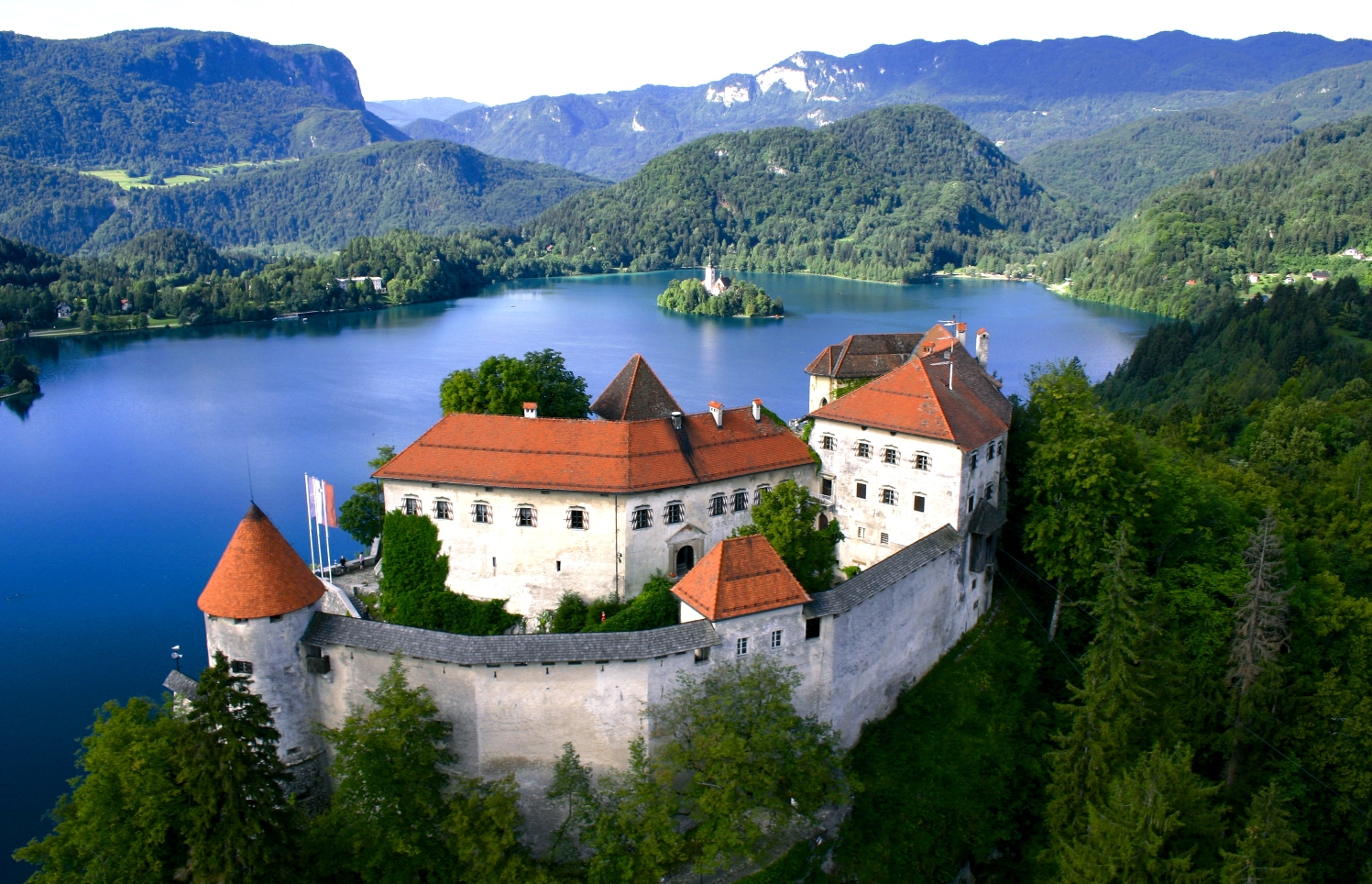
Tourism contribution to sustainable development addressed at the Bled Strategic Forum in Slovenia
“Safety, security, international cooperation and peace are key factors to ensure the sustainable development of the tourism sector,” said UNWTO Secretary-General, Taleb Rifai, at the Bled Strategic Forum, an annual meeting held in Slovenia. The occasion provided with the opportunity to present the UNWTO/World Travel & Tourism Council (WTTC) Open Letter on Travel and Tourism to Miro Cerrar, the Prime Minister of Slovenia.
The UNWTO/WTTC Open Letter calls on heads of state and government around the world to acknowledge tourism’s key role in delivering more sustained and balanced growth and prioritize the sector higher in national policies in order to maximize its potential. In the presentation of the Letter, UNWTO Secretary-General, Taleb Rifai and Gerald Lawless, Chairman of the WTTC, discussed the key factors affecting tourism development with the Slovenian Prime Minister.
“A major issue we face in our sector is that tourism is still underestimated by some leaders, particularly in its potential for job creation. My recommendation is to always include tourism in the policy agenda and consider travel facilitation as a key issue,” said UNWTO Secretary-General in the meeting with the Prime Minister.
The potential of Slovenia as a touristic destination guided the discussion and as Gerald Lawless, Chairman of WTTC, said: “Slovenia is a beautiful tourist destination. Currently, the Travel & Tourism sector contributes EUR4.9 billion to the Slovenian economy, which is 13% of the country’s GDP and supports over 13% of total employment. The Slovenian government and its people will see great further benefits from the commitment to the sustainable development of Travel & Tourism as investment in the sector will lead to higher visitor numbers and expenditure, and increased employment opportunities throughout the country”.
The contribution of tourism to the Agenda 2030 and the 17 Sustainable Development Goals (SDGs) was widely discussed in the Bled Forum. As UNWTO Secretary General stated, “it is very clear that security cannot exist without sustainability and vice versa. Indeed, tourism has never been more of an essential component of sustainable growth and stability”.
“Slovenia has become synonymous with sustainability and has also recognised the importance of cooperation in achieving sustainability and security – he mentioned – and UNWTO is convinced that in the present challenging times only by working together current concerns can be overcome and a better future is possible.”
Over the last years, the Bled Strategic Forum, has become a major incubator to debate current issues on development. In its 2016 edition the Summit has tackled tourism as a key driver for growth, job creation and environmental protection.
On the occasion, seven Slovenian companies signed the Private Sector Commitment to the Global Code of Ethics of Tourism expressing their engagement with sustainable tourism practices*.
Tourism in Slovenia
In 2015, the tourism sector in Slovenia saw a rise of 12% in the number of international tourists to reach 2.7 million. Growth was above that of Europe and the world. Revenues from exports of travel services will reach their highest level since 2008, as export growth reaches close to 10%.
Private Sector Commitment to the Global Code of Ethics
* The seven companies that signed the Global Code of Ethics in Tourism are as follows:
1 Turistična kmetija Urška
2 Hotel Park Ljubljana
3 Design rooms
4 Zavod Šouhostel
5 Kamp Koren
6 Terme Snovik – Kamnik
7 Terme Olimia
Additional information:
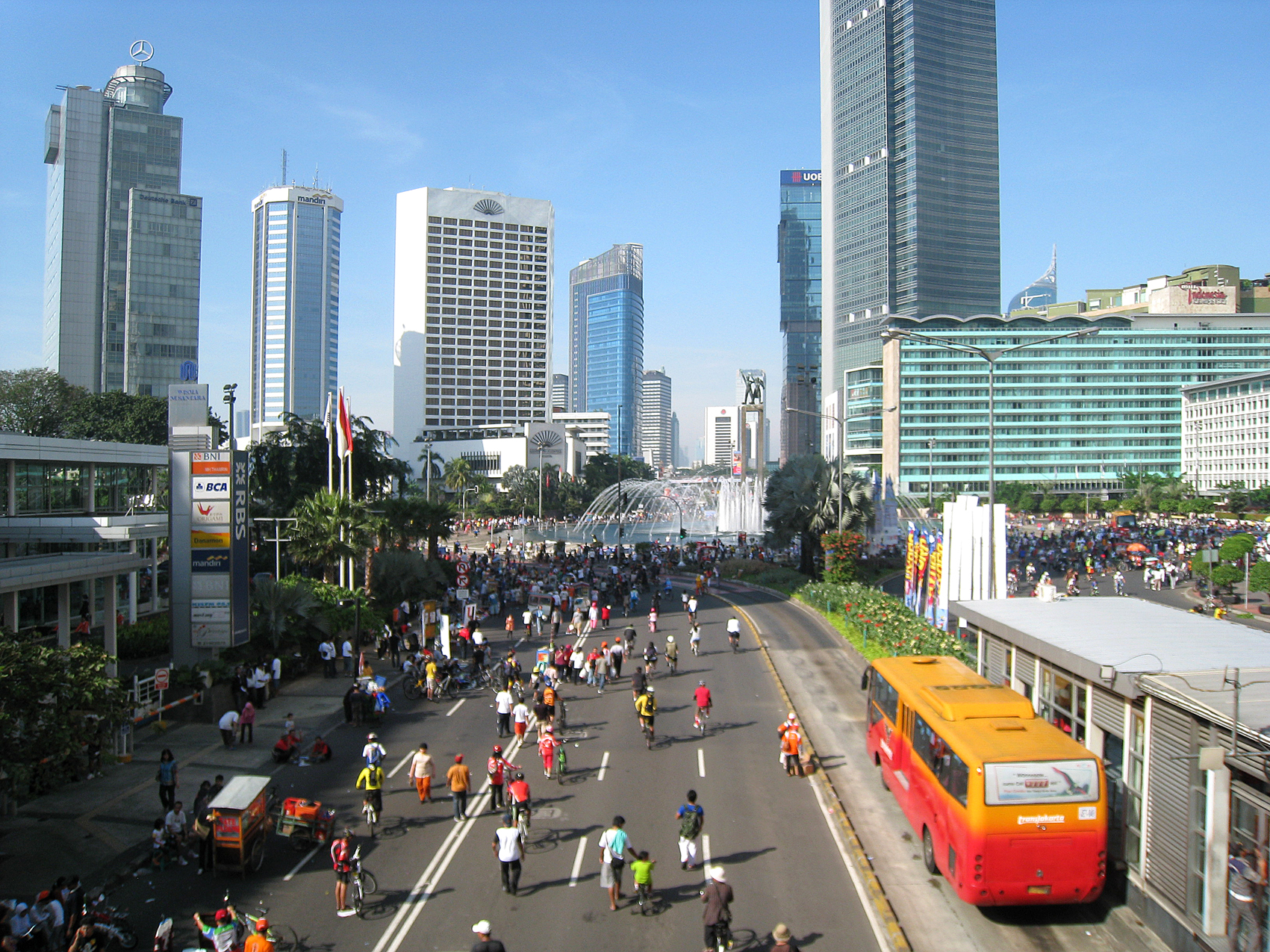
Indonesia Sustainable Tourism Observatories join the UNWTO Network
Indonesia has joined the UNWTO International Network of Sustainable Tourism Observatories (INSTO) with the opening of three sustainable tourism observatories, as announced at the PATA Travel Mart 2016 in Jakarta, which position Indonesia as a regional hub for sustainable tourism practices.
The observatories, located in the regions of Sesaot, Senggigi Lombok Barat, Pangandaran and Sleman, will be hosted by the Bandung Institute of Technology, Gadjah Mada University and the Mataram University. The newly created bodies will monitor and ensure sustainable practices of the tourism sector in these regions. They will be looking for examples of evidence-based decision making and timely measurement and management of resources and activities, each indispensable factors of sustainable tourism development.
Together with the opening of the three observatories, Indonesia has endorsed 20 regions to test pilot sustainable tourism projects and chosen ten priority destinations for the projects. “The more we preserve, the more prosperous we become,” said Arief Yahya, Minister of Tourism of Indonesia. “These observatories will contribute to Indonesia’s sustainable practices in other fields,” he added.
UNWTO Secretary-General Taleb Rifai welcomed Indonesia’s strong commitment to sustainable tourism: “Institutional support is essential to ensure the sustainable development of the tourism sector and Indonesia is exemplary in coordinating all stakeholders to make these observatories a reality.”
The establishment of the three observatories in Indonesia is timely, coming only a few months before the International Year of Sustainable Tourism for Development is launched in January 2017. During the celebrations the observatories will be prominently featured as crucial elements for ensuring the sustainable development of the tourism sector.
INSTO provides a framework for the regular gathering, analysis and communication of information on tourism’s environmental, social and economic impacts in destinations. Currently, the Network includes a total of 14 observatories (eight in China, three in Indonesia, one in Greece, one in Mexico and one in Brazil).
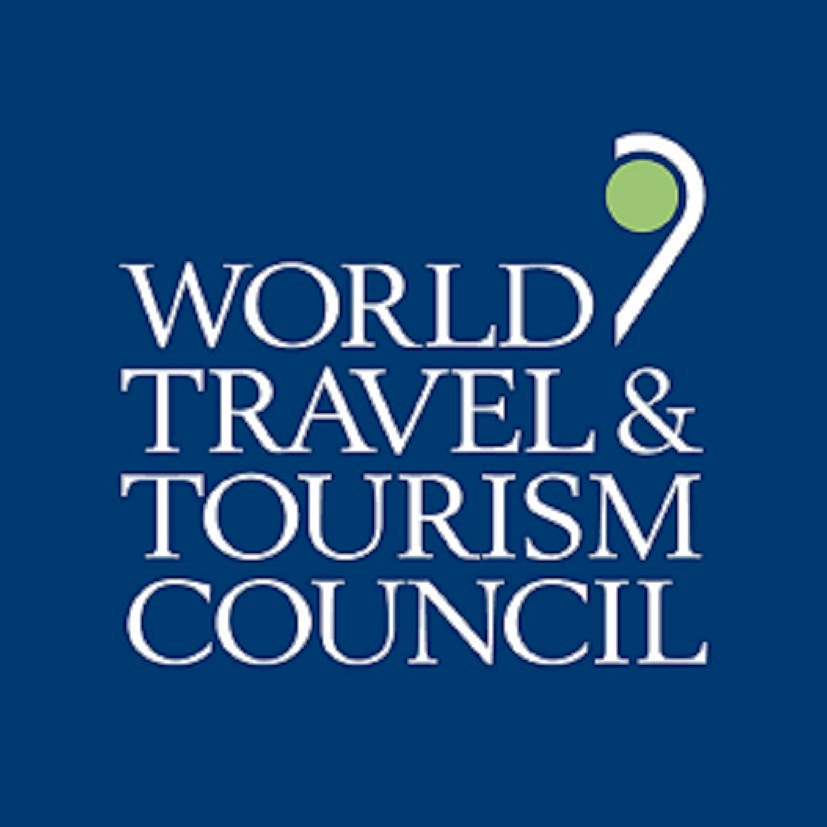
WTTC challenges tourism businesses to show how sustainable they are
The World Travel & Tourism Council (WTTC) challenges Travel & Tourism organisations to show how sustainable they are by entering their sustainable business initiatives for the Tourism for Tomorrow Awards 2017.
David Scowsill, President & CEO, WTTC said: ?I am pleased to announce that the twenty-eighth annual Tourism for Tomorrow Awards programme is now open for entries. Through the Tourism for Tomorrow Awards 2017 we shall highlight the commitment of the Travel & Tourism sector to the Sustainable Development Goals adopted by all 193 Member States of the United Nations in September 2015.
Companies and organisations that enter for these awards can show governments and other tourism organisations how growth and successful business models go hand in hand with the safeguarding of local communities, the environment and cultural heritage.?
Fiona Jeffery OBE, former Chairman of World Travel Market and Founder and Chairman of the international water aid charity Just a Drop, will be chairing the Awards for the third time. She commented: ?Tourism is a force for good, it connects people from different cultural backgrounds and environments. The WTTC Tourism for Tomorrow Awards celebrate the achievements of ethical tourism businesses around the world that look to give back to local communities by enhancing livelihoods where they operate and protecting the environment and cultural traditions to ensure a sustainable world for the future.?
I am delighted to be chairing again, and hope to again see many inspirational businesses apply for the 2017 programme.?
AIG Travel, Inc., the travel insurance and global assistance division of leading international insurance organisation American International Group, Inc., will be the Official Headline Sponsor of the Awards programme for the second year.
Jeff Rutledge, CEO, AIG Travel, Inc., said: ?AIG is committed to furthering the sustainability efforts of the Travel & Tourism industry, and we are honored to continue our support of the Tourism for Tomorrow Awards in 2017. Through education and the sharing of best practices, I am confident we can all make a difference by implementing eco-friendly business processes.?
Lead judge, Professor Graham Miller, chair in sustainability in business at the University of Surrey, will oversee a rigorous independent judging and on-site evaluation process carried out by an international panel of experts, representing academia, non-profit organisations, government and the private sector.
This year applicants can enter in the following five categories: Community; Destination; Environment; Innovation; and People.
The 2017 Finalists will be announced in January 2016 and the winners will be announced during the WTTC Global Summit 2017 in Bangkok, 26-27 April 2017.
The 2016 award winners were; Community Award: Expediciones Sierra Norte, Mexico; Destination Award: Parkstad Limburg, Netherlands; Environment Award: The Botswana Rhino Conservation Project by Wilderness Safaris, Botswana; Innovation Award: Carmacal Carbon Calculator by ANVR – The Netherlands Travel Trade Association, Netherlands; People Award: Youth Career Initiative, United Kingdom & worldwide
Award applicants can submit an application online via http://wttc.org/tourism-for-tomorrow-awards/apply/ Entries open today and the closing date is 14 November 2016.
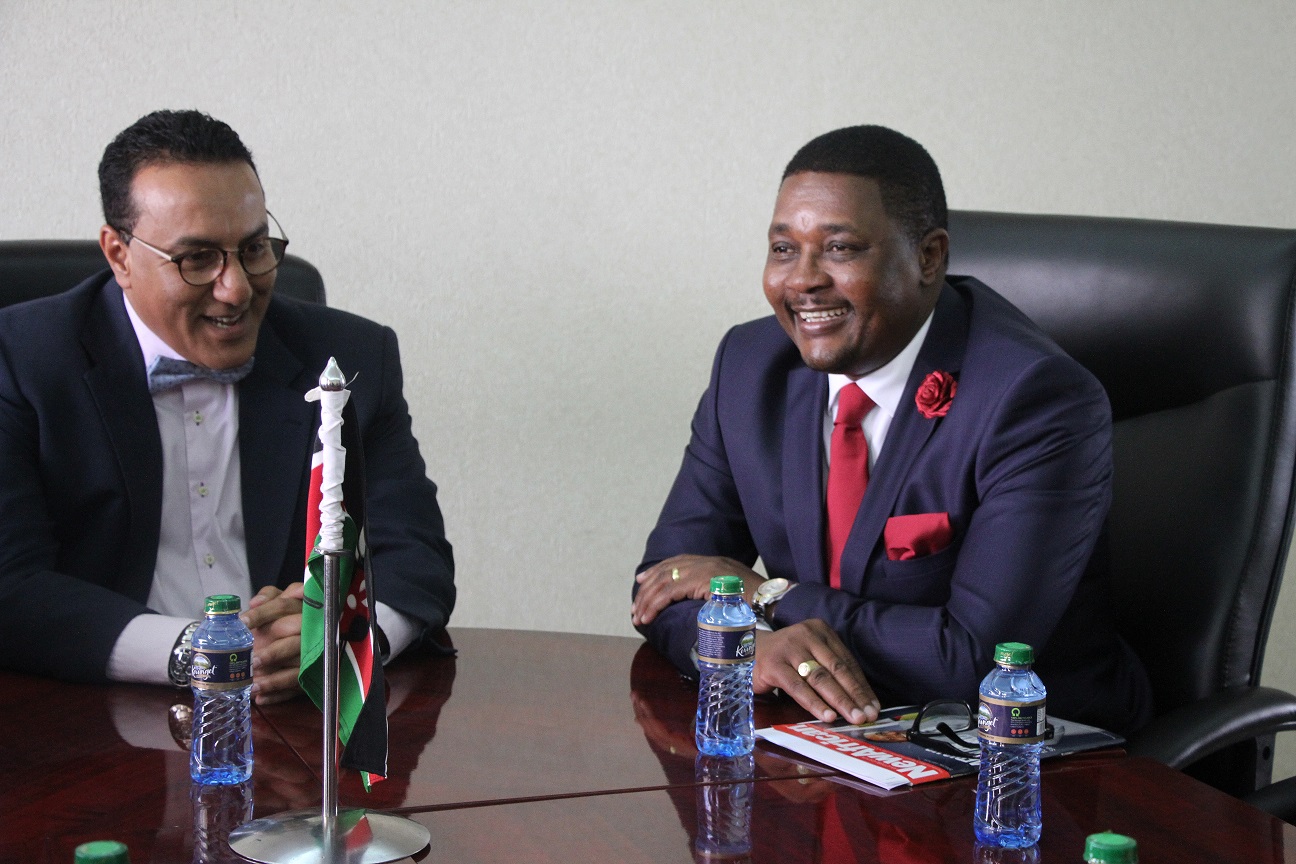
UNWTO Campaign reaches out to Executive Council member Kenya for support
On the final leg of his latest UNWTO campaign tour, Zimbabwe Tourism and Hospitality Industry Minister, Dr Walter Mzembi, arrived in Nairobi, Kenya, for comprehensive discussions with his Kenyan counterpart, Hon Najib Balala.
Kenya is a member of the UNWTO Executive Council and will be one of 32 Council members to vote for the next Secretary General of the UNWTO when the Council meets in Madrid, Spain, in May 2017.
The Minister’s visit to Kenya follows in the wake of the letter sent by His Excellency President Robert Mugabe to all African Heads of State – including His Excellency President Uhuru Kenyatta – seeking their support for Dr Mzembi’s candidature, and the subsequent unanimous endorsement of that candidature by the African Union Summit meeting held in Kigali, Rwanda, in July this year.
Dr Mzembi expressed his gratitude to the Minister and, through him, to His Excellency the President for their support and stressed that if Africa is to realize its ambition to head the UNWTO – the first time in the history of the Organisation – the continent will need to remain united and committed in its support for the AU-endorsed candidate.

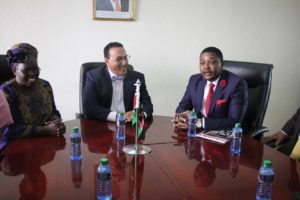
The ministers agreed to remain in close contact going forward and to intensify their cooperation both at bilateral and continental level as well as within the broader UNWTO framework.
At a bilateral level, the Ministers acknowledged that Zimbabwe and Kenya are natural cooperating partners in the tourism sector, and committed themselves to finalise an enabling bilateral Memorandum of Cooperation before the end of 2016.
Apart from intensifying the promotion of tourism between the two countries, the ministers agreed to investigate the possibility of enhanced cooperation in terms of existing air-links and related services between Zimbabwe and Kenya
Enhanced cooperation in the joint promotion of international conferences was also discussed. Within this context, Dr Mzembi highlighted the possibilities for Kenyan investment and cooperation in the development of modern convention and conference facilities in the Victoria Falls Special Economic Zone.
The meeting ended with the Ministers agreeing that Dr Mzembi would visit Kenya again in the near future in order to continue dialogue about enhancing bilateral tourism links and to share views on the future of global tourism under the umbrella of the UNWTO.

